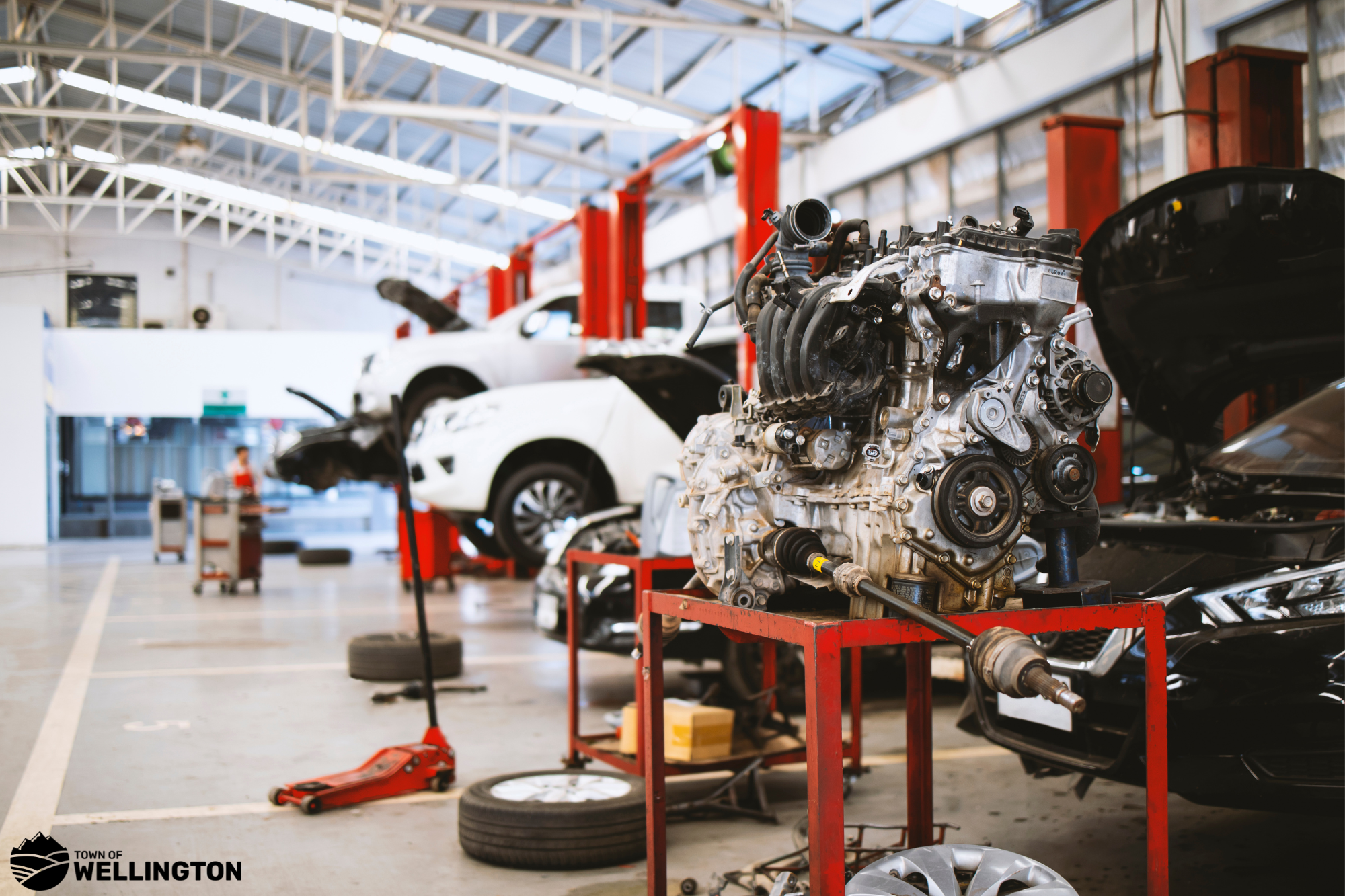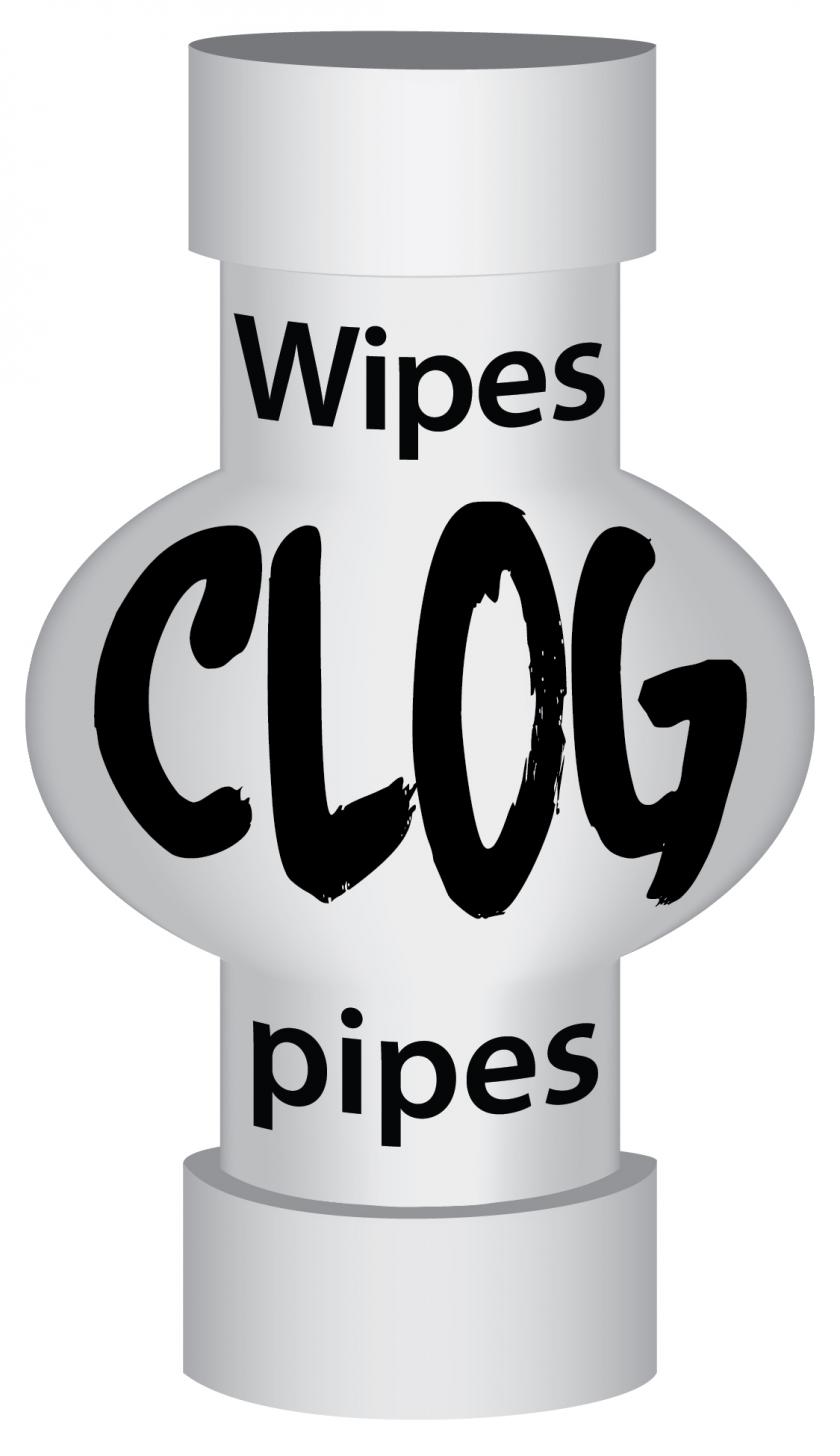Pre-treatment/Fats, Oils and Grease programs
The Town of Wellington's new Industrial/Commercial Pretreatment (ICPP) and Fats, Oils and Grease (FOG) programs are designed to protect the Town’s wastewater collection and treatment systems as well as the environment by preventing toxic, corrosive, and/or dangerous substances from discharging into the sanitary sewer system.
As part of these new programs, the Town will be implementing new policies and procedures that will help prevent high maintenance costs in our Collection System and at our newly expanded Water Reclamation Facility. All commercial business owners in Wellington need to review our Industrial/Commercial Waste Questionnaire and fill out all applicable fields.
The Town of Wellington recommends business owners complete the Industrial/Commercial Waste Questionnaire as part of the business licensing process. More information about that process, including the link to a step-by-step guide for submitting a Business License application, is available on the Town's Business Licensing page.
Business owners who must complete the Industrial/Commercial Waste Questionnaire before their next Business License renewal can access the Industrial/Commercial Waste Questionnaire here. Once completed, digital forms can be submitted electronically.
Printable versions of each form are also available. All brewers, winemakers, distillers and dental offices who choose to use printable forms will be asked to fill out an additional survey. Anyone opting to print out the forms can return them to the Town by email (FOG@WellingtonColorado.gov) or by dropping them off for Mike Flores at the Municipal Services Building (8225 Third St.) The available forms are:
Contact information
Anyone with questions about the FOG or Pretreat programs can email FOG@WellingtonColorado.gov or call 970-568-3381 x 301.
Importance of new programs
The Town of Wellington is implementing these new programs for two major reasons:
- The United States Environmental Protection Agency requires the Town’s Pretreatment Program to track grease trap/interceptor waste from all Food Service Establishments to its final disposal site. If your business uses a grease trap or interceptor, you must keep an interceptor maintenance log or copies of cleaning manifests/receipts from grease haulers on-site, for a minimum of 3 years, and provide them to the Town's IPP upon request. (Wellington Municipal Code Sec. 13-1-350)
- To help prevent Fats, Oils and Grease (FOG) blockages in the Town's sewer system.
What is FOG?
FOG refers to any fats, oils, and grease associated with food preparation, food service, and kitchen clean-up. These substances become a problem for the community when they are poured down the drain and, as a result, are allowed to build up in sewer pipes, pumps, and equipment.
This can cause back-ups and overflows that are hazardous to health, homes, businesses, and the environment — not to mention Wellington's new Water Treatment Plant and Water Reclamation Facility.
Specifically, fats, oils, and grease are defined below (a flyer containing this information is available to download here):
Fats
Fats are solid at room temperature. Examples include:
- Butter
- Shortening
- Margarine
- Peanut Butter
- Meat Trimmings
- Uncooked Poultry Skin
- Dairy:
- Cheese
- Milk
- Cream
- Sour Cream
- Ice Cream
Oils
Oils are liquid at room temperature. Examples include:
- Vegetable Oil
- Canola Oil
- Olive Oil
- Corn Oil
- Some Salad Dressings
- Cooking Oils
Grease
Grease turns to liquid during cooking but solidifies when cooled. Examples include:
- Gravy
- Mayonnaise
- Melted Meat Fat
- Bacon and Sausage
- Boiled Poultry Skin
- Some Salad Dressings
Food Service Establishments
Food Service Establishments (FSEs) in Wellington can help maintain our sewer system and keep a clean environment with proper maintenance and care of grease interceptors and traps:
- Have interceptors and traps designed and installed by a licensed plumber to handle the amount of grease expected from your facility.
- Clean and service the interceptors and traps on a regular basis.
- Do not add chemicals and additives that claim to dissolve grease.
- Follow the best management practices provided by the Wellington Public Works Department.
- Keep up-to-date records of all cleanings, maintenance, and service and provide to your local municipality upon request.
Grease handling, storage, and disposal
- Do not pour cooking oil or grease into sinks, garbage disposals, toilets, floor drains, parking lots, storm drains, or the street.
- Install an oil and grease trap and/or interceptor to help reduce the amount of grease entering the sanitary sewer system.
- Service oil and grease separators frequently based on the manufacture’s recommendation and use.
- Check dumpsters and compactors regularly for leaking to prevent discharge to storm drains, or attraction of rodents and pests.
- Scrape food waste from dishes and cooking surfaces into the trash before cleaning them with water.
- Dispose or recycle cooking oil and grease through a licensed waste hauler.
A flyer with visual instructions regarding grease handling is available to download here.
High-Strength Discharge
These new programs don't only apply to Food Service Establishments (FSEs) in Wellington. The Town's FOG and Industrial Pretreatment Programs work with any Wellington commercial establishment that produces high-strength discharge to reduce the amount of potentially hazardous substances in the wastewater system.
High-strength wastewater discharge is wastewater discharge containing a higher concentration of organic matter, solids, FOG (fat, oil and grease), or other organic components than residential wastewater. These discharges can include contaminants such as solids, sulfides, high temperatures and extremes in pH. These factors can generate odors, corrode pipes, adversely affect aquatic organisms and impact the Wastewater Reclamation Facility and personnel.
Best Practices
To achieve the objectives of the FOG and Pretreat programs, the Towns has created a High-Strength Discharge Best Management Practices (BMPs) program. The BMPs program provides High-Strength Dischargers with a list of steps they should be taking to avoid harming their water system or the Town's. Some of those Best Practices include:
- Reducing solids
- Moderating pH levels
- Cooling and conserving water
- Spill prevention and response planning
- Adhering to record-keeping standards
A full breakdown of the program can be found using the link below.
General information for residential & commercial customers
Pipe maintenance and service
Disposal of items like grease, motor oil, wipes, eggshells, coffee grounds, and cat litter — just a few items on a long list — in toilets, sinks or garbage disposals frequently clogs the home sewer lateral and/or the main municipal sewer line. The result of such clogs can cause service interruptions for that customer as well as potentially many others. It can also cause undue stress and damage to the Town's new water treatment facilities.
FOG issues
The accumulation of fats, oils and grease in sanitary sewer systems is a leading cause of sewer blockages across the country. Correcting a blockage can be expensive. If a blockage occurs in a service lateral, it will be the owner’s responsibility to relieve the blockage. If a blockage occurs in the Town's collection system, the maintenance costs are covered by all sewer utility rate payers.
What can I do to prevent FOG-related clogs?
DO NOT pour fats, oils and grease from cooking down the drain. Residential customers should collect the grease in a metal can (soup cans work great), and once the grease has cooled and solidified, place it in the trash for disposal. Commercial customers should follow the steps listed above in the "Grease handling, storage, and disposal" section.
Other useful facts about grease disposal:
- Garbage disposals do nothing to protect sewer lines from grease buildup. Use disposals sparingly.
- Dishwashing detergents do not protect sewer lines from grease buildup. While it is true they initially break up the grease, they eventually lose this ability and grease will then accumulate in sewer lines.
- Chasing grease down the drain with hot water only causes the grease to buildup elsewhere.
What other items should NOT go down the drain or toilet?
Anything that will not totally dissolve and breakdown in water can cause a sewer blockage in residential and municipal lines, and should therefore not be introduced to the sewer system. Besides fats oils and grease, items that should not be put down the drain or flushed down the toilet include, but are not limited to:
- Baby wipes
- Bandages
- Cotton products like cotton balls, cotton swabs or feminine hygiene products
- Diapers
- Dental floss
- Paper towels
- Medications
- Cat litter
- Rags
- Towels
- Underwear
- Panty hose
- Plastic bags
Wipes Clog Pipes
Sanitary/baby wipes are also an extremely common cause of blockages in sewer systems. Those products — even ones that are labeled "flushable" wipes — do not break down like toilet paper and can easily cause a clog. Dispose of ALL wipes in the trash, never flush them down the toilet.